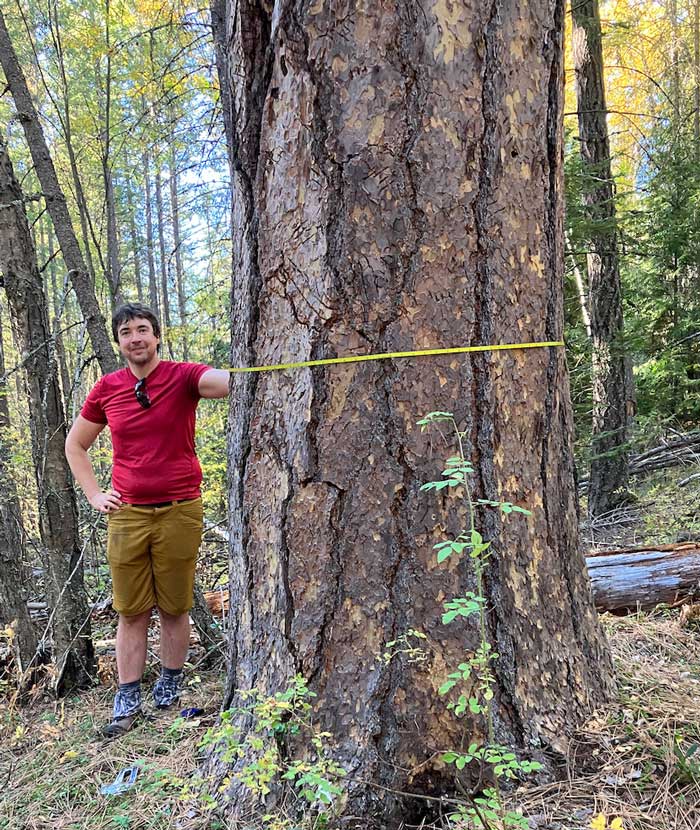
A special report from the FrackFree BC conference held in Vancouver last week, including a short interview with Seth Klein.
The movement to protect the old forest of Cai Creek just outside Castlegar. Matt Casselman of Kootenay Forest Watch tells us about clearcut plans.
Nelson participants in BC We need a bus day tell us what they need public transit for.
LISTEN NOW OR DOWNLOAD HERE:
LINKS:
FRACK FREE BC https://frackfreebc.ca/
WHAT YOU CAN DO ABOUT LNG and FRACKING
https://davidsuzuki.org/what-you-can-do/top-10-reasons-to-say-no-to-lng-in-b-c/
Save Cai Creek
https://savecaicreek.com/
West Kootenay Transit Action
https://westkootenaytransitaction.ca/
EVENTS
Friday, June 21 at noon PDT
Climate Hub June Webinar: Preparing for Wildfire Season
Zoom – Registration required
As we face another summer with risks of wildfires, heat and smoke, our last webinar of the season will explore ways to build our community’s resilience in the face of worsening climate impacts. Topics include resilience centres, DIY air purifiers, basics of fire smarting our homes and neighbourhoods, and how to prepare ourselves and our communities before an emergency.
Wednesday, June 26 6:30 pj
Taghum Hall
he West Kootenay Watershed Collaborative for a Science Pub featuring guest speaker Robert Gray AFE Certified Wildland Fire Ecologist and the president of R.W. Gray Consulting LTD.
How can we make our landscapes more resilient to fire, drought and insects.
Tickets for the event are just $10. To reserve yours in advance you can E-transfer to wkwccontribute@gmail.com or you can pay at the door.
ENVIRONMENT NEWS BITS
A major provincial park expansion will create a protection zone of almost 2,000 square kilometres for caribou and other species in northeastern British Columbia.
BC Ministry of Environment announced an addition of almost 2,000 square to the Klinse-za Park will make it the largest provincial park established in the province in a decade.
The park addition is the result of a partnership in 2020 between the province and the Saulteau and West Moberly First Nations, where they agreed to help stabilize and protect the threatened southern mountain caribou.
Klinse-za Park is located just west of Chetwynd, B.C.
The province says the number of caribou in B.C. fell by more than 55 per cent in the last century, mostly due to human-caused habitat disturbance, and there are fewer than 4,000 of the southern mountain species left.
Environment and Climate Change Canada says it’s now able to publicly identify links between episodes of extreme heat and climate change within days of a weather event.
The federal department says that its scientists now have the ability to estimate the degree to which human-induced climate change played a role in a heat wave or extreme heat event within a week of it happening.
Friederike Otto, an internationally renowned climate researcher and one of the global leaders in weather attribution science, said Canada’s weather service will be the first in the world to issue rapid analyses of heat events.
“The would be the first (meteorological office) who will do this operationally,” she said.
“It’s about time but it’s great that they are doing that.”
The amount of water Alberta allocates to its oil and gas industry has grown by more than 70 per cent since 2009, according to provincial data.
Comparison of current allocation data with data from a 2010 Alberta Environment report shows that oil and gas now accounts for nearly 11 per cent of all water allocation, up from 6.2 per cent in 2009.
That increased share of the overall water picture is also reflected by a 72 per cent increase in the volume of water allocated — more than a billion cubic metres in 2024, up from 613 million cubic metres in 2009.
While BC shivers through a record cool Junuary, a massive heat dome is settling over Eastern Canada and the Eastern and Midwestern United States this week. Weathercasters are warning that temperatures will hit 35°C.
CBC says the heat warning will affect millions of people in Ontario, Quebec, New Brunswick, and Nova Scotia. The humidex—a reading that factors in the impact of humidity as well as heat—is expected to reach 40°C in Toronto, 41°C in Fredericton, and 45°C in some parts of Ontario.
Climate Central reports that between June 18 and 20, more than 25 million people across the eastern half of the U.S. “will experience heat made at least four times more likely because of human-caused climate change,” and the impacts are expected to continue beyond those three days.
A group of southern Alberta ranchers is turning to the province’s top court in a final bid to block applications for coal exploration in the Rocky Mountains.
Ron Davis, reeve of the Municipal District of Ranchland, said last Wednesday his council will revive an application before the Alberta Court of Appeal to reviewthe Alberta Energy Regulator’s decision to accept the applications, The Canadian Press reports. The movecomes the day after the regulator announced it was denying the ranchers’ request for an internal regulatory appeal.
Alberta has a ministerial order that blocks coal development in the Rockies, with the exception of so-called “advanced projects” that have filed a project description with the regulator.
Last November, Energy Minister Brian Jean wrote the regulator suggesting the Grassy Mountain proposal from Australian-owned Northback Holdings should be considered one of those projects, although the same project under the name Benga Mining has been rejected by federal and provincial environmental reviews.
Members of the Haisla Nation have voted almost unanimously to join the Cedar liquefied natural gas (LNG) project in Kitimat, British Columbia, just a few weeks after analysts warned against counting on significant international demand for Canadian exports.
Of the 496 community members who participated in the ratification vote, 461, or 93.5%, agreed with a plan for the band council to borrow up to C$1.4 billion. The Haisla Nation owns 50.1% of the project and Calgary-based Pembina pipeline holds 49.9%.
The two partners could make a final investment decision on the project by the end of this month, the Globe says. They estimate they’ll need US$3.4 billion in capital spending and $600 million to cover other costs in order to complete Cedar, a floating liquefaction vessel with annual export capacity of 3.3 million tonnes of LNG. It’s expected to start shipping product to Asia in late 2028.
The Alberta government has shut down its often-embarrassing oil and gas “war room”, the institution it set up in 2019 to counter purported “misinformation and lies” about Canada’s fossil fuel industry.
“So many self-inflicted wounds, so few allies,” CBC headlined last week. “Alberta’s energy war room was long doomed.”
The Canadian Energy Centre Ltd., as it was called, “was set up in 2019 as a private corporation rather than a Crown agency—a deliberate tactic by the United Conservative Party government to shield it from access to information laws, despite being funded entirely by Alberta taxpayers,” the Globe and Mail recalls. “Armed with an initial C$30-million-a-year budget, the energy war room fulfilled a promise made by former Alberta premier Jason Kenney in the 2019 election.”
At one point last year the war room mounted a campaign attacking Nanaimo for the city’s plan to stop installation of more gas pipelines and services.
The Liberal government intends to move ahead with its 2019 campaign commitment to put an end to open-net salmon fish farms in coastal B.C. waters but the industry has been given five years to adapt to the plan, three sources say.
The federal cabinet made the decision last week and an announcement is expected on Wednesday in British Columbia, the sources say. The exact details, including a transition plan for the operators and fish workers, were not shared with The Globe and Mail. The Globe is keeping the sources confidential because they were not authorized to discuss the matter publicly.
The sources said the government will renew the licences for open-net fish farms for another five years, which matches the business cycle from hatchery to harvest, and then the industry must dismantle its open-net pens and move to land-based operations.
On June 2, Iceland elected an amazing climate – Halla Tomasdottir ! Halla and Katherine Hayhoe are members of Project Dandelion, an inspiring women-led global campaign for climate justice. Before running for president, Halla was the CEO of The B Team, a global nonprofit advocating for “economic systems change and new corporate norms” to ensure a livable future for humanity. In her 2021 TED Talk, she calls on people to use their “voice, vote and wallet for climate action.”
https://www.linkedin.com/pulse/iceland-has-climate-president-katharine-hayhoe-xv5kc

